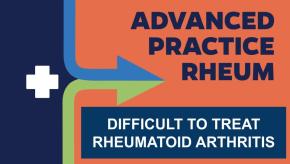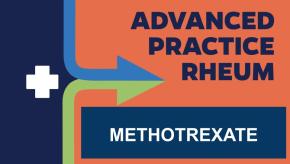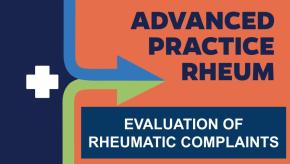
Blogs


Evaluation of Rheumatic Complaints
Dr. Cush provides a systematic approach to evaluating musculoskeletal and rheumatic complaints in clinical practice.The War Rheum
The effects on rheumatologists and their patients living in Ukraine largely have been unseen by the world. At ACR Convergence 2024, I met Dr. Marta Dzhus who practices at St. Michael's Clinical Hospital in Kyiv; she shared her story with me about the humanitarian crisis in rheumatologic care in Ukraine because of the ongoing war. Here is an excerpt of our conversation.
Overlap Syndrome with ILD
How would you manage a patient with Overlap (anti-synthetase) syndrome, ILD, polyarthritis and myositis?
Gangsin: 갱신 Korean: refresh, renew, updated
Remaining status quo requires less effort than making a change. Over the last 20+ years, I have listened to thousands of patients confide their personal stories. Some remained paralyzed in their current state of distress, fearing new situations may be worse. I was one of them, until recently. In this final blog of my trilogy on self-discovery, I reveal my new life.Karoshi - {Japanese 過労死: Death by Being Overworked}
Over the last few decades, Japanese workers were collapsing dead at their desks or committing suicide due to the high stress stemming from their jobs; Japan coined this phenomenon, “Karoshi.” In 2021, the World Health Organization and International Labour Organization issued a warning: working 55+ hours a week is a serious health hazard and increases the risk for death from heart disease and stroke. But since the pandemic, I see many colleagues working hard at the expense of their health, family life, mental and emotional well-being. I never thought I would be burned out because I had passion for my job.Best of 2023: PMR: glad or bad tidings?
Please don’t tell your patient that PMR “typically” lasts two years. According to real-world data from the UK, one in four patients with PMR is prescribed steroids by their primary care physician for over four years. But nobody tells them this at the start, and that causes big problems later on.When PMR Strikes Young, It Hits Hard
Narratives around polymyalgia rheumatica (PMR) often centre around “older people” or even “elderly”. And, indeed, the peak of the age distribution is in the mid-70s – not that everyone that age considers themselves old. Treating “young PMR” can be a very different proposition to treating someone in their seventies or eighties. It’s worth taking time to think this through.















